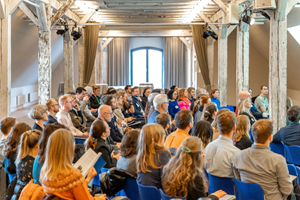Academic researchers from Northumbria University and King Fahd University of Petroleum and Minerals (KFUPM) in Saudi Arabia are currently engaged in an investigation on how Artificial Intelligence (AI) can contribute to enhancing the environmental sustainability of the construction industry.
Dr. Pablo Martinez Rodriguez, hailing from Northumbria’s Department of Architecture and Built Environment, collaborates with co-investigator Dr. Osama Mohsen from KFUPM, having secured funding from the British Council’s UK Saudi Challenge Fund for a year-long research endeavor. Their selection is predicated upon their demonstrated expertise and extensive research background within this domain. The focal point of their inquiry revolves around mitigating waste generation from construction sites in both the UK and Saudi Arabia, aligning with broader initiatives aimed at fostering sustainability.
The construction sector in the UK notably consumes a substantial portion, up to 40 percent, of the nation's raw materials annually, with approximately 20 percent of this ending up in landfills. While efforts have been made to divert a fraction of this waste, the current diversion rate of about 13 percent falls short of the ambitious 99 percent target envisioned for the near future. The imperative of waste reduction in construction is underscored by its pivotal role in achieving the UN sustainability goals slated for 2030.
Similarly, Saudi Arabia confronts analogous challenges, compounded by the imperatives of managing growth sustainably within a rapidly evolving economy. Data from Saudi Arabia’s National Centre for Waste Management underscores the substantial environmental and economic toll of solid waste mismanagement, estimated at $1.3 billion in 2021. Notably, the construction industry in Saudi Arabia generates an estimated 130 million tonnes of waste annually, with less than 1 percent undergoing recycling. The remainder primarily finds its way into landfills, exacerbating the escalating demand for landfill space.
The collaborative effort led by Dr. Martinez Rodriguez and Dr. Mohsen endeavors to develop AI-driven models capable of effectively identifying and quantifying waste across various construction materials, such as wood and plastics, which are susceptible to landfill disposal but possess recyclability potential. Moreover, the research seeks to facilitate a comparative assessment of waste management practices and sustainability initiatives between the UK and Saudi Arabia.
Dr. Martinez Rodriguez emphasizes the need for a paradigm shift from conventional waste analysis methods, predominantly reliant on modeling techniques, towards real-time monitoring facilitated by AI-powered visual sensor systems deployed at construction sites. This shift is poised to enable accurate waste quantification, thereby imbuing waste with economic value and fostering a deeper understanding of circular economy principles crucial for industry-wide sustainability.
While the UK exhibits a marginally more developed stance on sustainability compared to Saudi Arabia, both nations currently lack a precise waste measurement infrastructure. Consequently, the anticipated outcomes of this research bear relevance to policy formulation and the delineation of best-practice guidelines for the construction industry in both contexts.
As part of the British Council’s Going Global Partnerships programme, the UK-Saudi Challenge Fund serves as a conduit for fostering collaborative research endeavors, internationalization efforts, and transnational educational initiatives between UK and Saudi institutions.
Northumbria University boasts a track record of successful sustainability research collaborations with Saudi partners, exemplified by Dr. Muhammad Wakil Shahzad's endeavors in devising sustainable solutions for clean drinking water provision to rural communities. Dr. Shahzad's contributions were acknowledged with the prestigious Energy Globe Award (Saudi Arabia) in 2021, underscoring the tangible impact of collaborative research endeavors in addressing pressing societal challenges.













